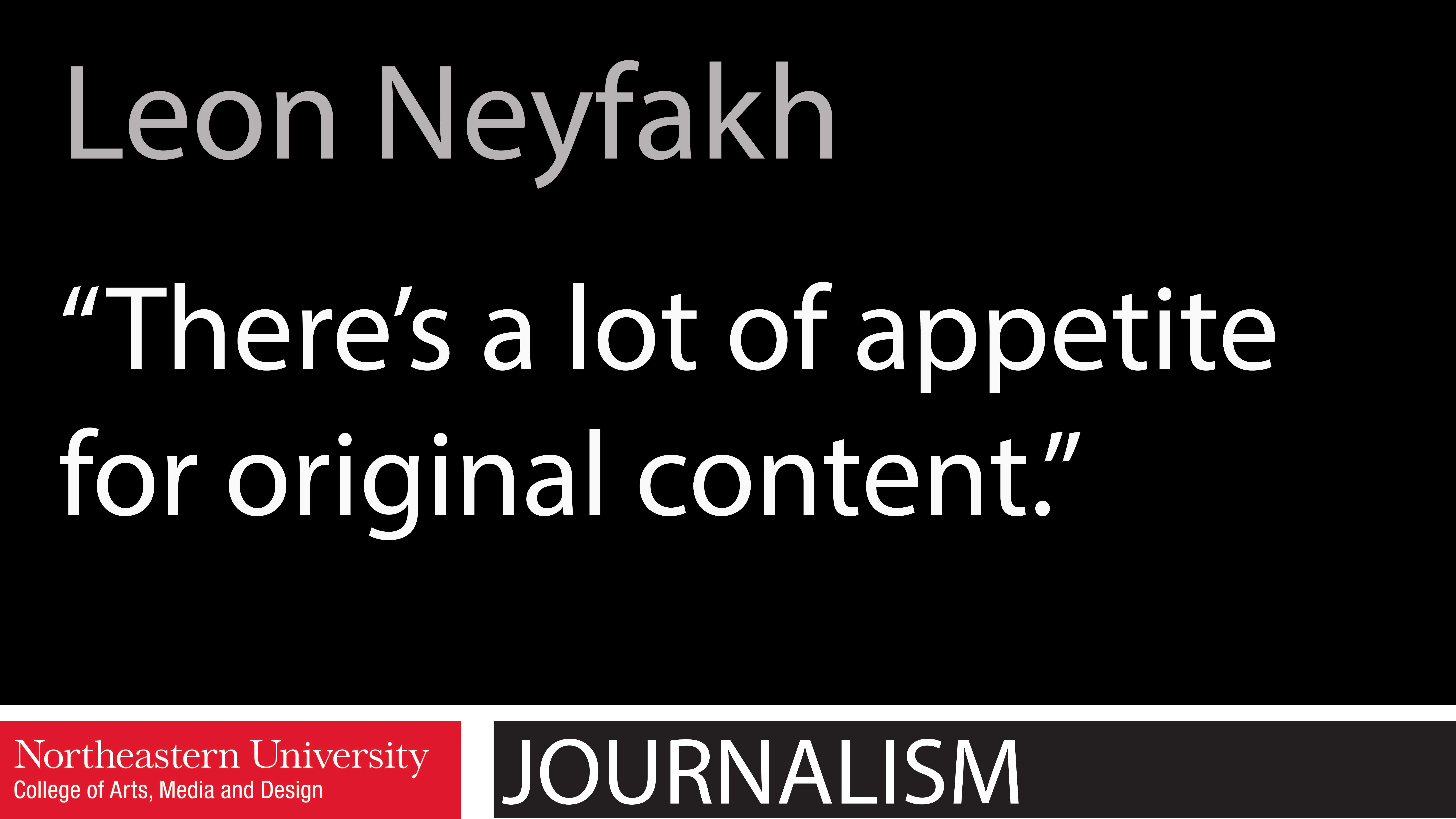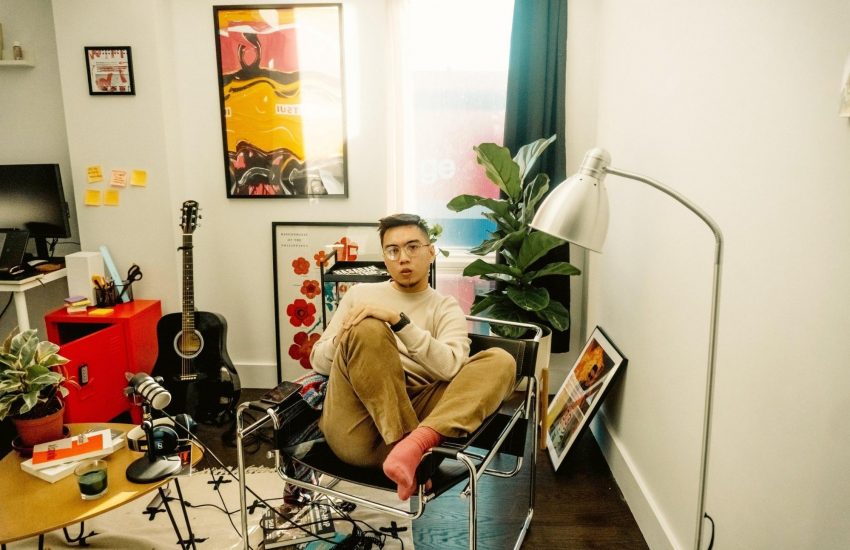The creator of Slow Burn and Fiasco on why you should try podcasting
Leon Neyfakh, the host of hit podcasts Slow Burn and Fiasco, made it into the podcasting world at just the right time. While speaking at “Pizza, Press, & Politics,” a speaker series presented by the Journalism School at Northeastern University, Neyfakh and co-producer Sam Graham-Felsen urged prospective podcasters to follow in their paths.
Neyfakh conceptualized Slow Burn at the height of the Robert Mueller investigation in 2017. “A question on everyone’s lips was, ‘How similar is this to Watergate?’ ” Neyfakh said.
Slow Burn explores various political scandals in American history, from Watergate to former Ku Klux Klan leader David Duke’s foray into elected politics. Neyfakh hosted the show’s first two seasons, then moved on to create Fiasco in 2019. Graham-Felsen joined Fiasco in its third season, which focuses on the tumultuous desegregation of Boston’s public schools in the 1970s.
Neyfakh did not embark on his journalism career expecting to host what USA Today would eventually refer to as “one of the top shows on Apple podcasts.” He said that after about 10 years working as a print reporter, he joined Slate magazine with only the notion that he wanted to “try” podcasting.
“I didn’t know much about it, didn’t listen to that many podcasts,” he said, “but when Serial came out, it put narrative, audio documentary-style podcasts on a lot of people’s radars — including my own.”
Slate, which started releasing podcasts in 2005, was an influential player in what Neyfakh called “the first wave of podcasts.” Even though this media phenomenon happened more than 15 years ago, the hype around podcasts has yet to die down.
According to Neyfakh, podcasting is a “really fertile field,” with many newspaper and magazine companies investing money into new podcasting projects every year. “There’s a lot of appetite for original content,” he said.
Graham-Felsen, who started out in video documentary-making, said the podcasting industry is comparatively more beginner-friendly. Aside from the plethora of guides available in print and online, newcomers to podcasting can also enjoy relatively inexpensive, professional-grade equipment.
“I remember I had to work all summer to save up thousands of dollars to buy a video camera and a high-quality microphone,” said Graham-Felsen. “Now, for a professional-quality audio kit, it would be maybe $400 for a recorder and a couple hundred bucks for a microphone.”
Graham-Felsen also told students that writing for podcasts can also improve one’s journalistic writing skills. “I think if you have to write something that sounds good when you speak it out loud, it’s better writing, period,” he said. “Writing shorter sentences, writing clearer sentences, that’s what audio journalism forces you to focus on, with laser-like precision.”
The two podcasters, who both have a history in print journalism, said that print journalism and podcasting do not exist in two separate worlds, and recommend that new journalists explore the world of podcasting for themselves.
- The creator of Slow Burn and Fiasco on why you should try podcasting - February 16, 2021





